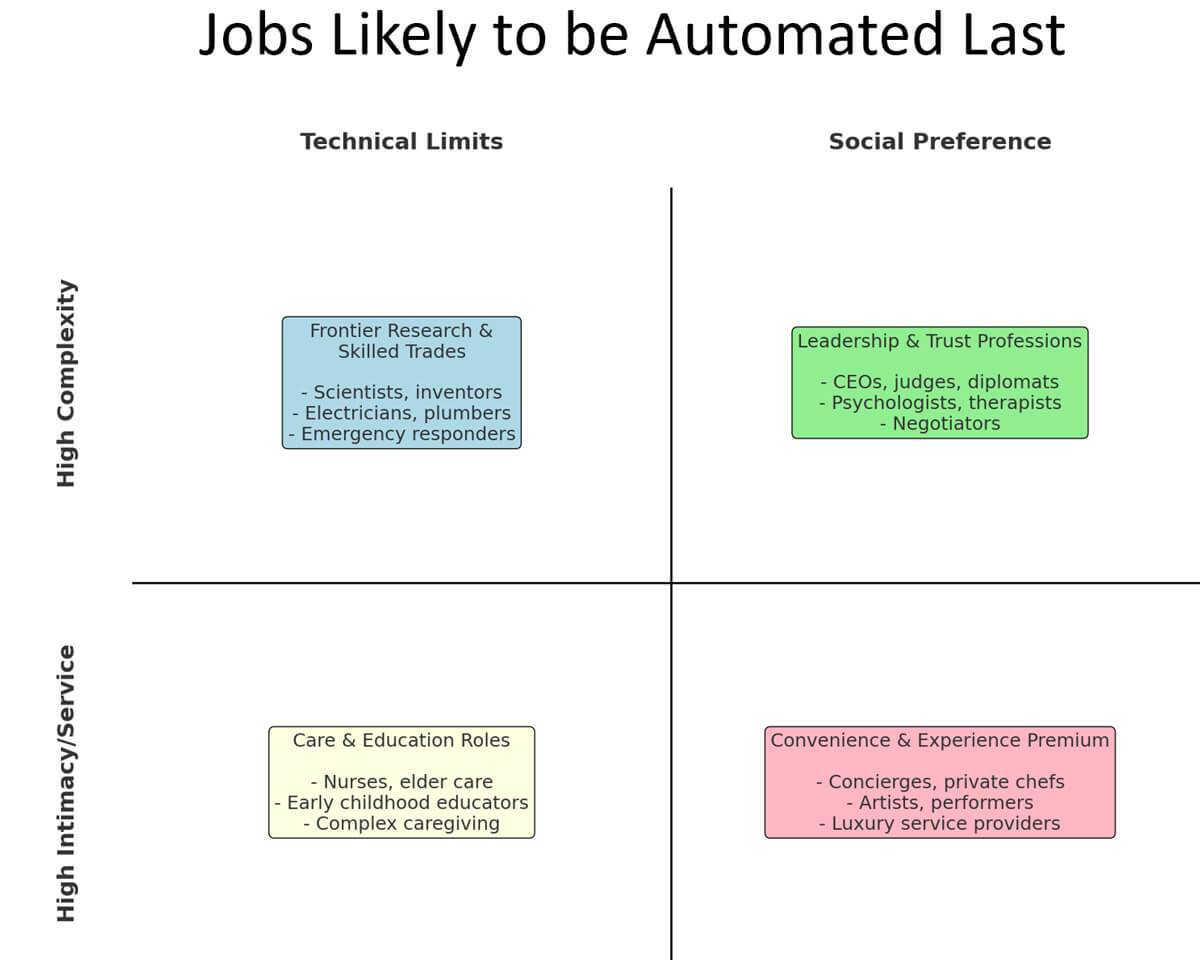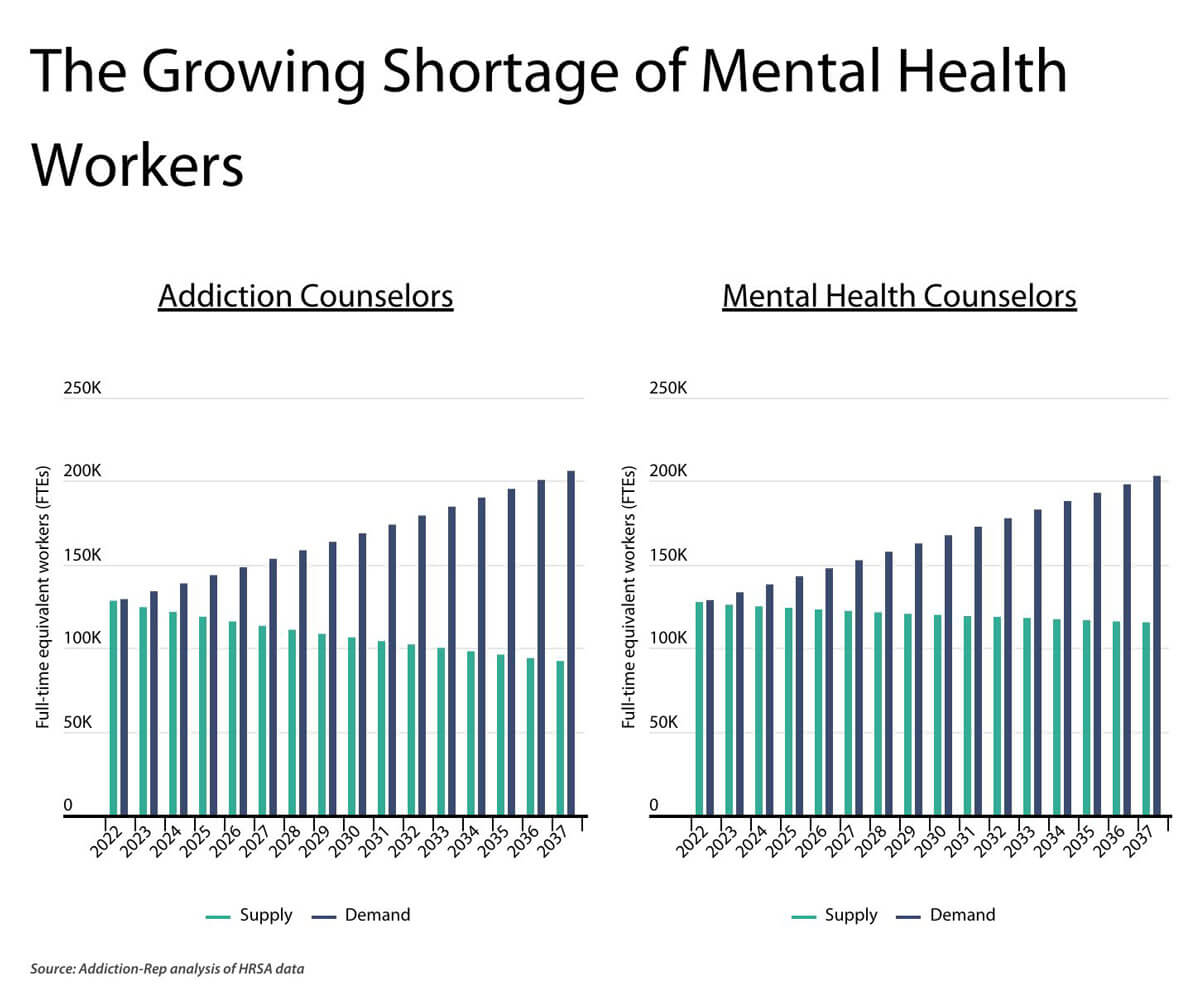Jobs That Will Still Be Around After AI — Especially in Behavioral Health
Artificial Intelligence is transforming the global workforce faster than any previous wave of technology. From data entry to copywriting, automation is taking over repetitive, rules-based work at incredible speed. But amid this transformation, there’s a growing awareness that some jobs — especially those rooted in empathy, creativity, and complex human judgment — will endure.
In behavioral health, those qualities aren’t just helpful. They’re essential.
The Limits of Automation
AI can process data, predict outcomes, and even mimic emotion through natural language models. What it cannot genuinely do — at least not yet — is feel. Empathy, trust, and human connection remain distinctly human traits.
Jobs most resistant to automation tend to share several characteristics:
- Complexity: They require nuanced, context-driven decisions.
- Relational depth: They depend on trust and emotional intelligence.
- Creativity and originality: They involve producing something truly new.
- Physical or tactile variability: They require fine motor skills and adaptability.
These are the areas where human judgment still outperforms machines.

1. Relationship-Based Professions
Behavioral health is built on trust, empathy, and nuanced understanding — traits that cannot be replicated by algorithms.
Roles likely to endure:
- Psychologists, therapists, and recovery coaches
- Religious leaders and spiritual counselors
- Diplomats, mediators, and high-level negotiators
In addiction treatment and mental health care, the therapeutic relationship itself is the intervention. AI may assist with diagnostics or progress tracking, but the healing power of human empathy remains irreplaceable.
2. Creative and Originality-Driven Work
AI can remix patterns, but true creativity comes from human experience and emotion. Original works — whether novels, marketing campaigns, or recovery narratives — reflect lived reality.
Enduring roles include:
- Novelists, playwrights, poets
- Designers and artists pushing cultural boundaries
- Brand strategists and storytellers
Even in behavioral health marketing, authenticity and storytelling rooted in real human struggle will continue to outperform machine-generated messaging.
3. Leadership and Governance
When decisions carry ethical, financial, or emotional weight, people still want other people in charge.
Examples:
- CEOs and organizational leaders
- Judges, arbitrators, and regulators
- Military commanders and government officials
AI can analyze, but it can’t legitimize. Leadership requires accountability and persuasion — things that can’t be delegated to an algorithm.
4. Skilled Trades and Tactile Work
Jobs that require dexterity, improvisation, and situational judgment are also hard to automate.
Examples:
- Electricians, plumbers, and mechanics
- Firefighters and emergency responders
Just as in healthcare, real-world unpredictability makes automation difficult. Robots may assist, but they won’t replace human responders anytime soon.
5. Research at the Frontier
AI is powerful at exploring known problems, but it can’t yet decide which problems are worth solving.
Examples:
- Fundamental scientists and medical researchers
- Inventors developing new therapeutic modalities
In addiction and behavioral health research, human curiosity still drives innovation — from new medication-assisted treatments to trauma-informed care models.
6. Care and Service with Intimacy
Some of the most irreplaceable work in our society is also the most personal.
Examples:
- Nurses, elder-care providers, and mental health aides
- Early childhood educators and caregivers
Technology can monitor, but it can’t comfort. Compassion and dignity are deeply human. In recovery and behavioral care, these interactions define quality outcomes.
7. The Convenience and Experience Premium
Even when automation is possible, people often prefer the human touch — especially when it enhances experience.
Examples:
- Private chefs, concierges, and sommeliers
- Artists, performers, and wellness coaches
Consumers will continue to pay for authentic, human-driven service and entertainment — for connection, not just convenience.
Behavioral Health: A Case Study in Human Resilience
The demand for behavioral health jobs will continue to grow while the supply of labor decreases according to HRSA Data.

In behavioral health, the intersection of science and empathy defines success. As AI reshapes industries, clinicians, counselors, and caregivers represent the very qualities that automation cannot reproduce — compassion, presence, and purpose.
Tools like AI may streamline documentation, scheduling, and compliance, but they are extensions of care, not replacements for it. The future of behavioral health is augmented, not automated.
Key Takeaway
If your profession requires empathy, judgment, or creativity — especially in healthcare or behavioral health — the future belongs to you. AI will change how we work, but not why we work.
Human connection remains the final competitive advantage.
This article was written with the assistance of Jim Sterne of Targeting.com
